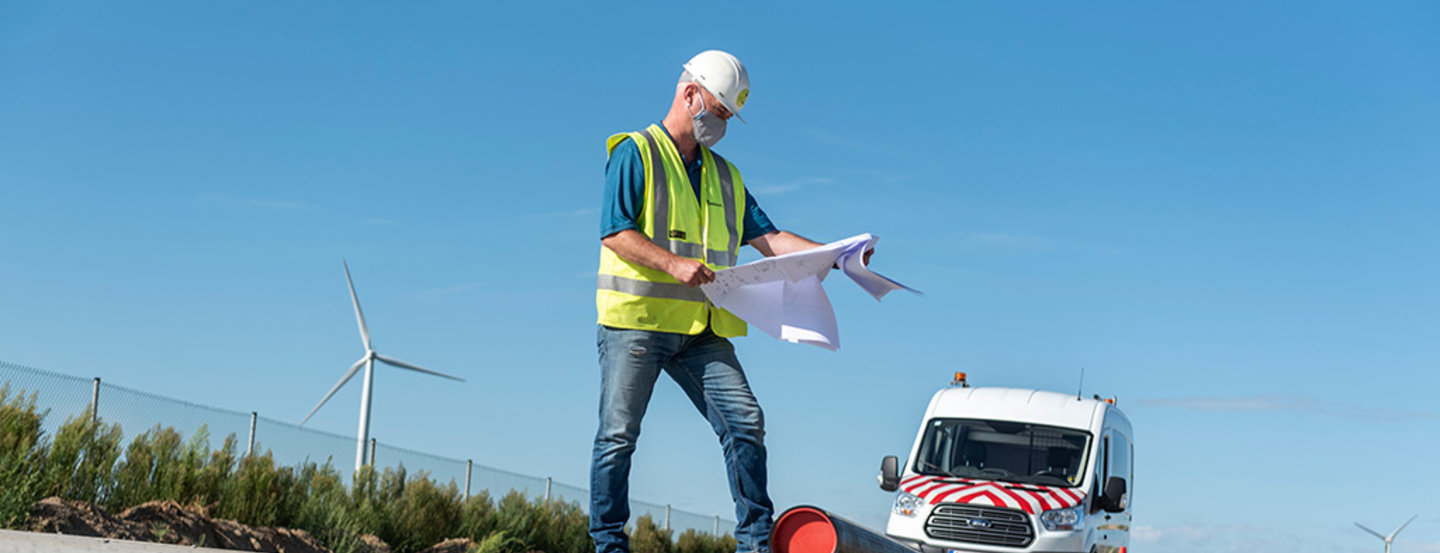
Looking after networks
Fluvius is a network business. We build public networks for electricity, natural gas, public lighting, sewerage, cable TV, telecom and heating. We then give customers access to these public networks. And we provide services all around these utilities day and night. The focus is on reliability and affordability.
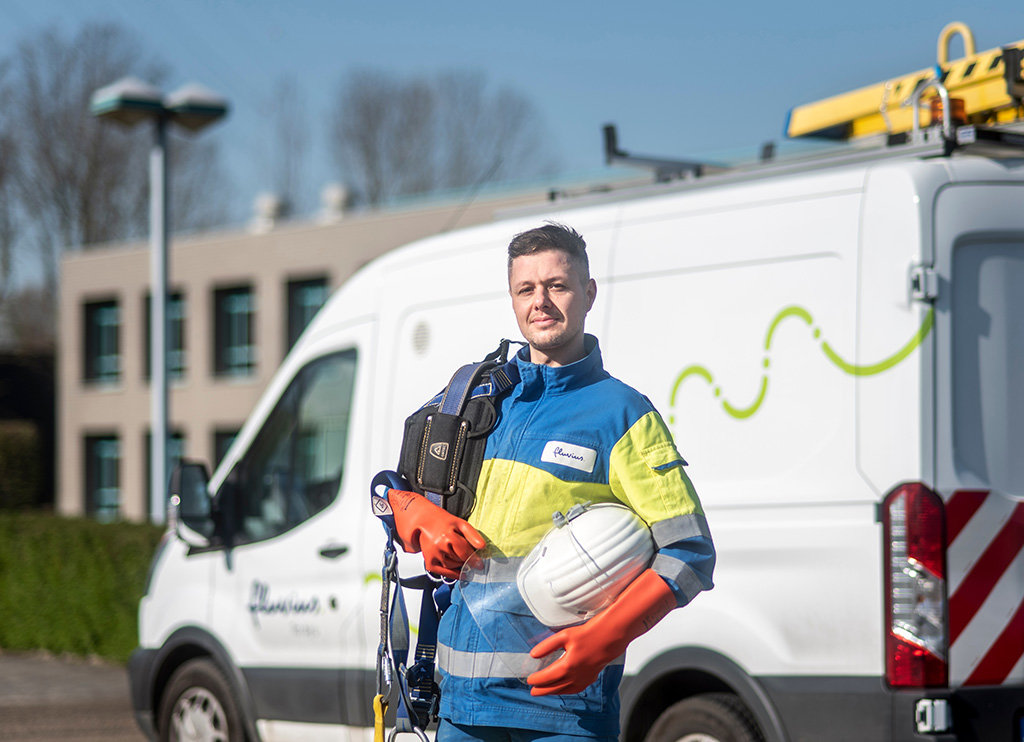
Two goals: reliable and affordable
- Reliable: in 2020, the average Fluvius low-voltage customer was without an electricity supply for just 19 minutes and 28 seconds due to interruptions to the low-voltage and medium-voltage grid. That puts Flanders right at the top of the European table, and shows how we contribute to the convenience of our customers.
- Fall in distribution grid tariffs: in 2021, overall income from distribution grid tariffs will fall by EUR 140 million for electricity, while rising by EUR 32 million for natural gas. For households, electricity distribution grid tariffs are falling for the fourth year in a row. In 2021 households will be paying an average of EUR 16 less for electricity distribution grid tariffs, and EUR 2 more for natural gas distribution grid tariffs. The prosumer tariff is rising by an average of 5%.
Businesses will also see falling distribution grid tariffs in 2021. An SME with standard usage will pay an average of EUR 249 less for electricity distribution grid tariffs and EUR 41 less for natural gas distribution grid tariffs. For larger businesses using medium-voltage power, electricity distribution grid tariffs will actually fall by an average of 24%.
Local generation rising
Although Fluvius does not generate electricity itself, we play a crucial role in the transition to more sustainable, low-carbon energy. We take care of the connection of decentralised (= local) energy sources, which are often renewable. We also distribute the electricity that is generated via our networks.
The locally installed capacity on our grids, which comes mainly from solar panels and wind turbines, is steadily increasing.
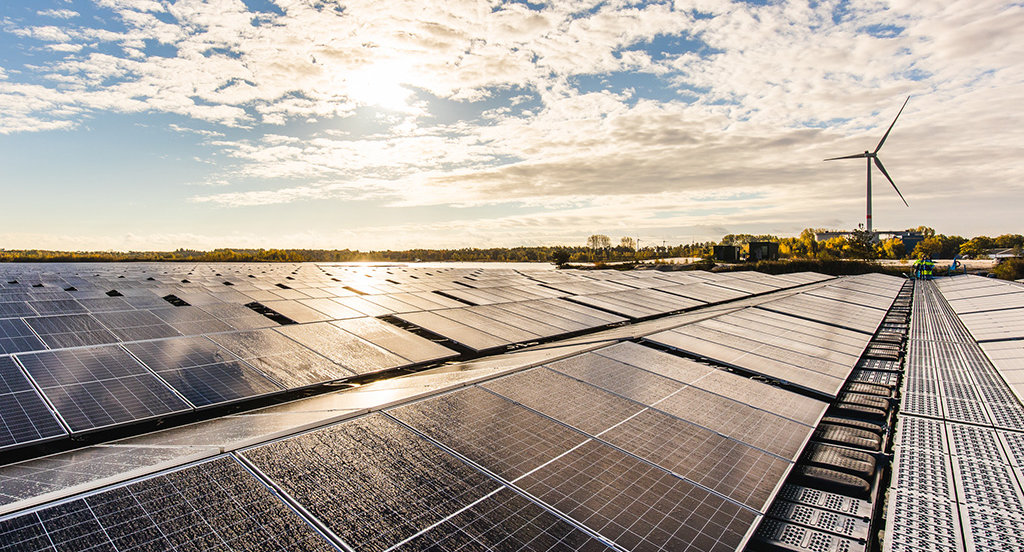
Installed decentralised capacity: 2019 - 2020
| Installed decentralised capacity | % 2019 |
kW 2019 |
% 2020 |
kW 2020 |
|---|---|---|---|---|
| Solar panels <= 10 kW | 34,6 |
1 876 371 |
38,6 |
v2 440 977 |
| Solar panels > 10 kW | 21,6 |
1 174 674 |
20,7 |
1 313 190 |
| Combined heat & power (CHP) | 15,7 |
853 258 |
14,5 |
918 508 |
| Wind turbines | 20,6 |
1 123 046 |
18,9 |
1 198 108 |
| Bio-CHP | 3,9 |
212 946 |
3,8 |
241 609 |
| Biomass | 1,6 |
89 722 |
1,4 |
v91 392 |
| Other | 2,1 |
114 908 |
2,0 |
126 518 |
| Total | 100 |
5 445 038 |
100 |
6 330 301 |
Notable Fluvius network projects in 2020
Technical first for wind energy at Katoen Natie
In late 2019 and early 2020, we achieved a technical first at logistics group Katoen Natie in Kallo. Two Wind aan de Stroom wind turbines were directly connected to the site’s electricity substation.
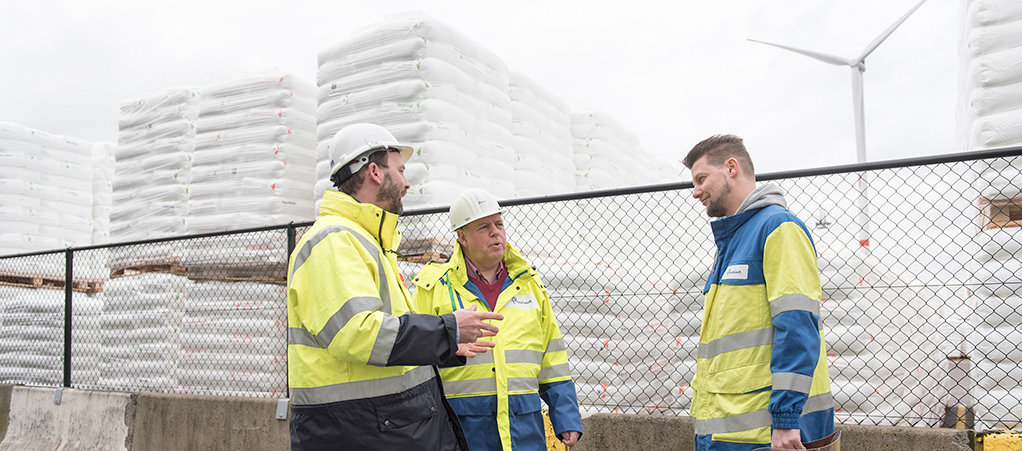
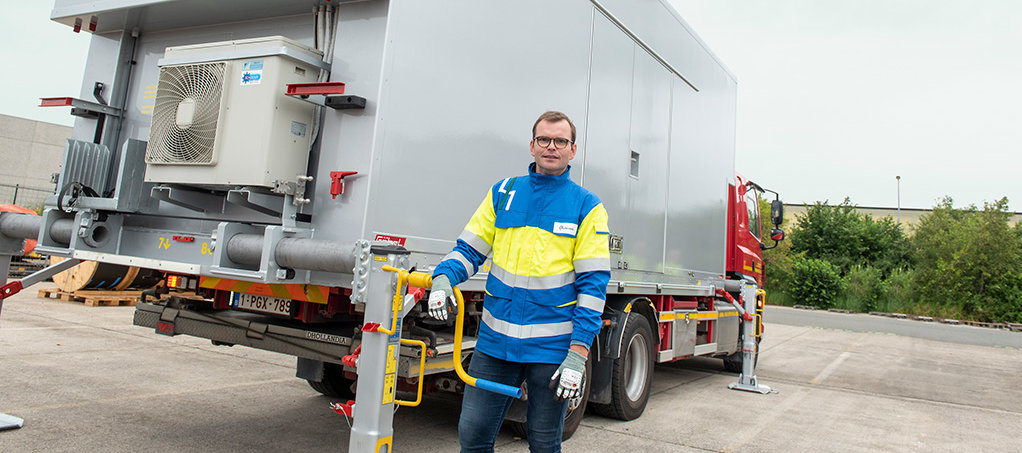
Mobile electrical rescue point
As of July 2020, Fluvius can use its own ‘mobile emergency point’. This mobile power station can be set up in 24 hours in the event of a major incident that might otherwise lead to power cuts lasting several days.
Impressive wind park in Zeebrugge
The ICO Windpark, the biggest onshore wind park on a single industrial site in Flanders, was erected in the port of Zeebrugge at the end of summer 2020. The eleven powerful wind turbines are located on the site of International Car Operators (ICO), where many ships carrying traditional and electric vehicles for the European market are unloaded. Fluvius took care of connecting the wind park to the grid.
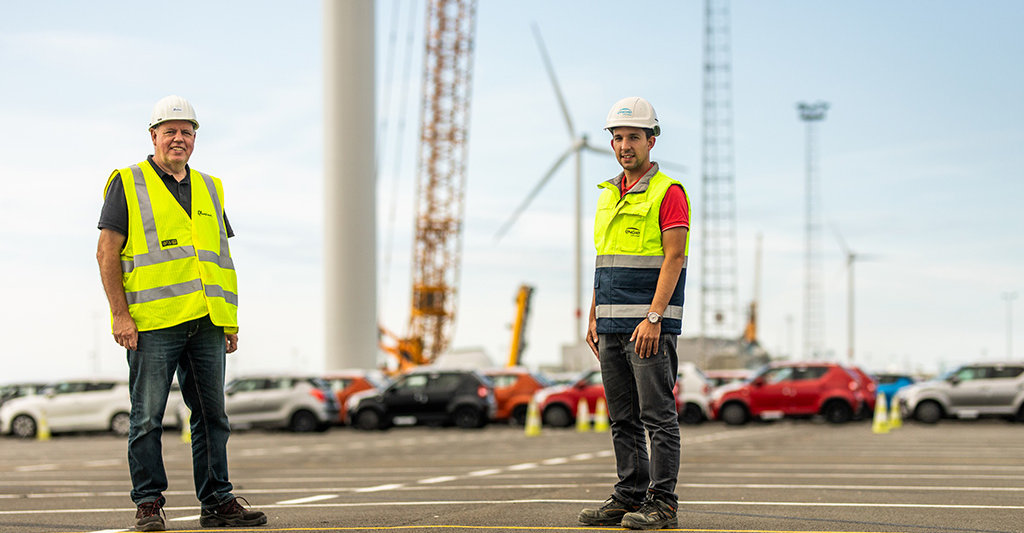
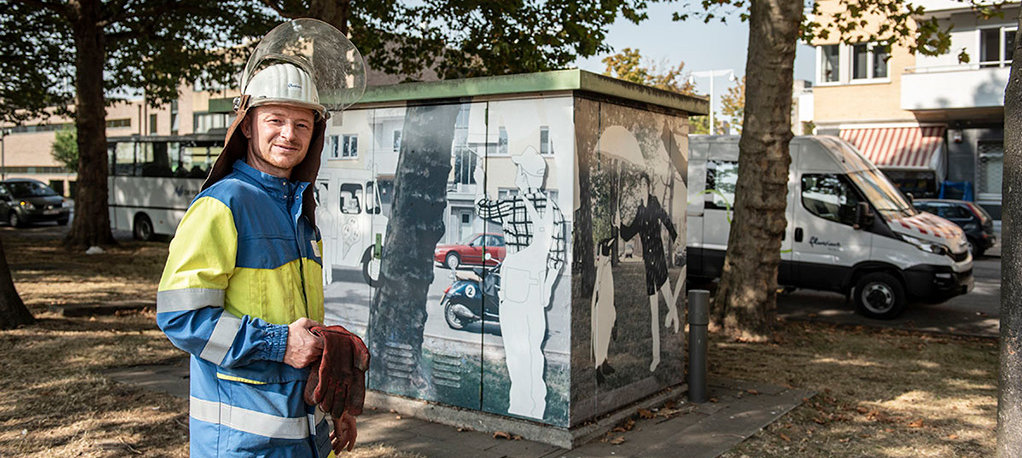
Pimped-up Fluvius boxes
In summer 2020, ‘pimped up’ utility boxes popped up in a number of communities. Artists painted the grey ‘pavement boxes’, conjuring up some real artistic gems. Two hundred Fluvius electricity and telecom boxes were among those to receive a makeover. Fluvius supports local authorities with such projects.
De Lijn and Fluvius are working together on e-bus charging
In 2020, transport company De Lijn and operator Fluvius signed a collaboration agreement to expand the charging infrastructure for electric buses. De Lijn intends to replace 1,200 buses with hybrid or electric vehicles by 2035. Fluvius is helping to ensure that the electricity grid can supply the required extra power at the right locations.
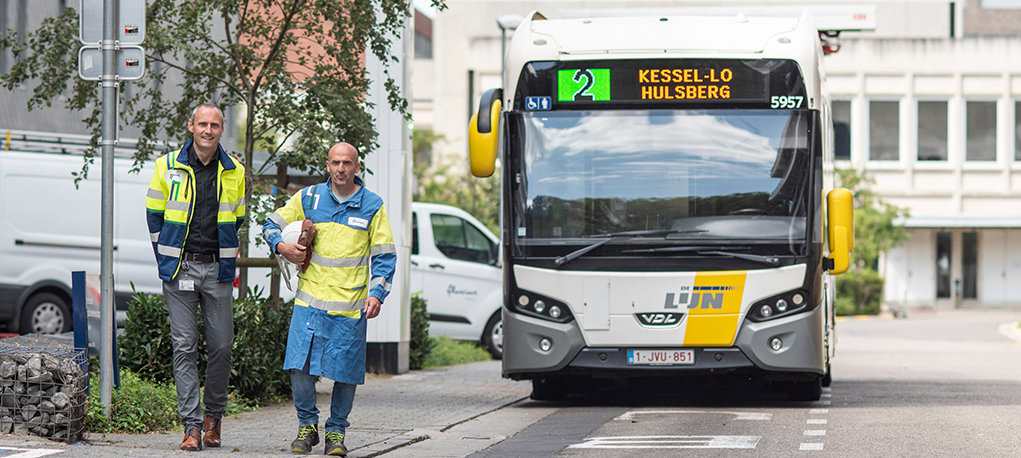
Heating networks: on the rise
More and more local authorities are using heat as an energy source. At the end of 2020, we had more than 58.7 km of heating networks in 15 Flemish municipalities with 1,796 connected customers. The number of new heating projects is rising, too. Since heat forms part of our multi-utility vision, we take care of the installation and operation of heating grids.
Fluvius’s role: heating grids in the public domain
Wherever it makes sense, we want to leave as much as possible to the free market when it comes to generating and supplying heat and laying heating networks on private land.
However, we believe that the installation, management and maintenance of heating grids in the public domain should be regulated, just like the electricity and gas markets. Heating grids in the public domain should ideally belong to a public entity. This approach resolves a number of risks and social issues. Not only that, having a single heating grid operator makes it possible to have a consistent long-term investment policy, which is extremely important for heating networks.
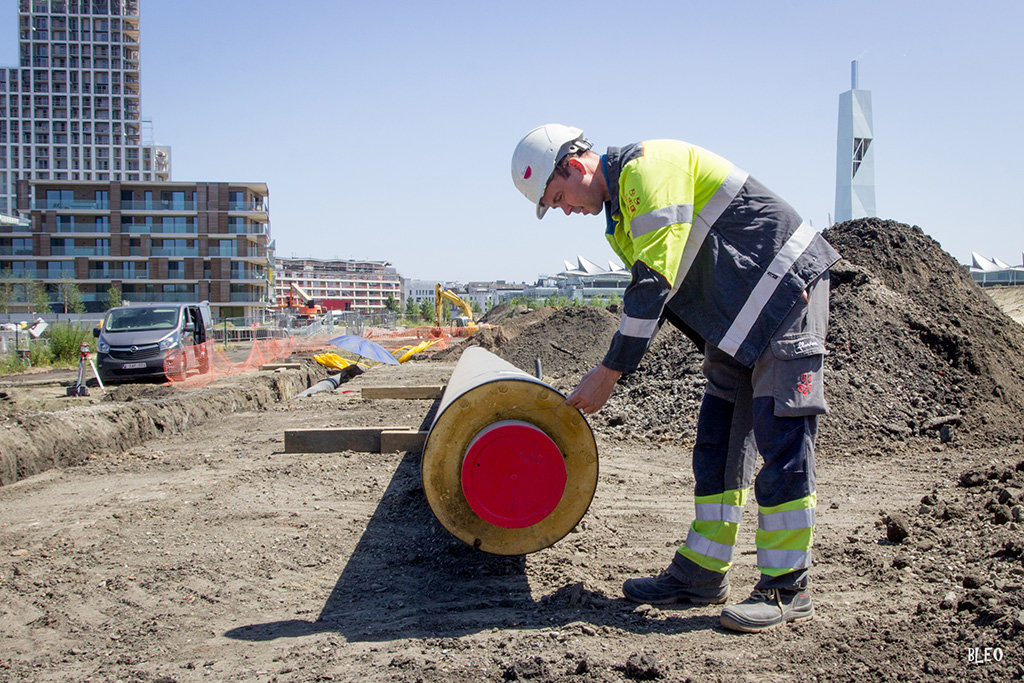
Our most notable heating projects in 2020
Expanding the Roeselare heating grid
In Roeselare, a heating grid has already been circulating surplus heat from the incineration plant of intermunicipal refuse collector Mirom to parts of the town for around 30 years. In summer 2020, we extended that network to the new Roobaertpark district, where a total of nearly 1,000 new homes will be built over the next few years. We are installing a heating grid in each new zone, as well as around two kilometres of supply lines.
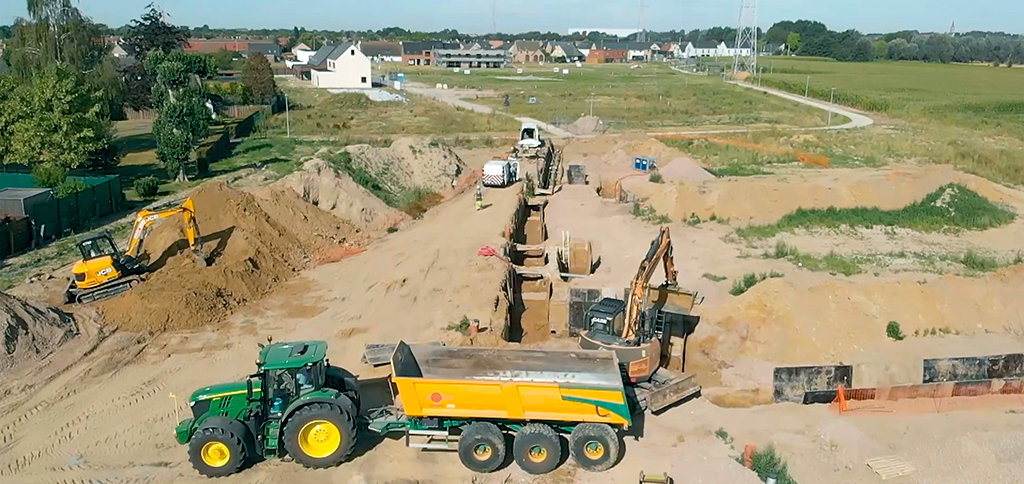
Working with Pepsico in Veurne
In 2020, we signed a memorandum of intent with Pepsico regarding their potato crisp plant in Veurne. Surplus heat from the plant will be piped to our heating grid in the new Suikerpark residential district. Installation of this heating link is scheduled for spring 2022.
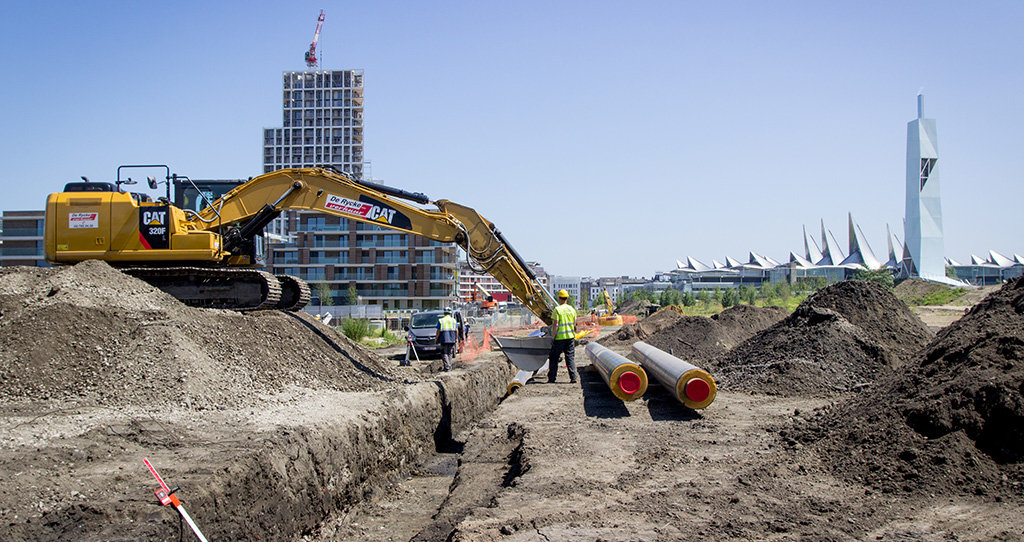
Heating plan in Antwerp
As the heating partner of the City of Antwerp, we want to build public heating networks in an ecological, economical and socially acceptable way. To achieve this, Antwerp and Fluvius have jointly developed a heating plan. The first zones to receive a heating grid are being mapped out in areas where large heat consumers or sustainable local heat sources are located.
Data networks of the future: fibre optics
We’re playing the fibre optic card to provide rapid and affordable internet access to everyone in Flanders. This is part of our multi-utility goal of managing all public network infrastructures and data networks and creating maximum synergy. Fibre optic creates a huge benefit for our cable distribution operations. We already manage the cable TV network for 103 cities and municipalities, with a total length of 27,830 km and over 1.1 million connections.
Making the choice for fibre optic led to five successful fibre-to-the-home pilot projects in 2019. Bringing fibre optic cabling right into the customer’s home massively increases the data carrying capacity. To build on this success, we sought to identify one or more operational telecom partners. After a public tendering process and negotiations with major players in the Flemish telecom market, we selected Telenet on 26 June 2020. We are now starting discussions with this telecom operator in order to give further shape to our collaboration.
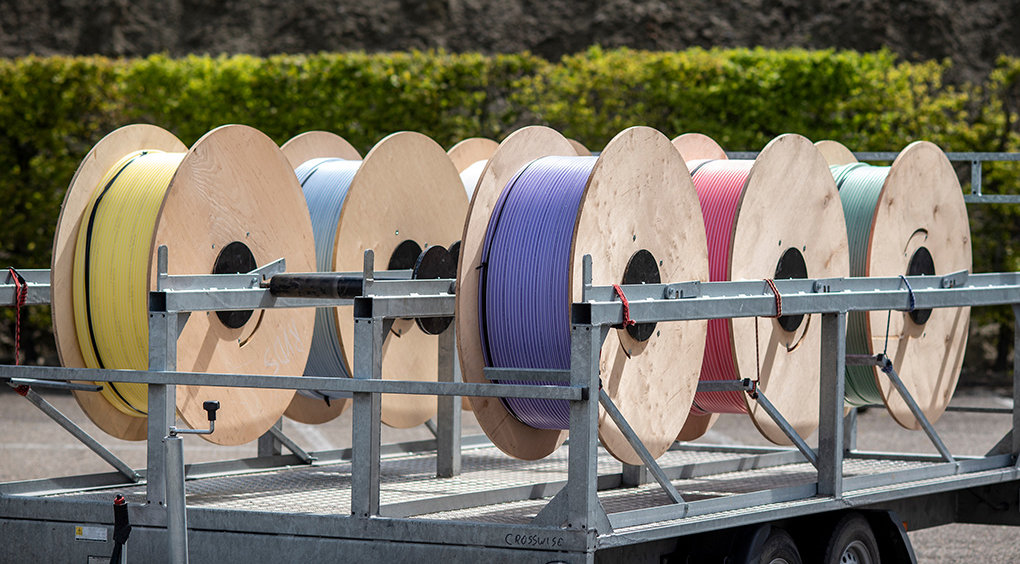
Water management: Flanders’ biggest sewer system operator
We want to play a strategic role in water management, both for sewerage and for ground and drinking water. Joining forces with municipalities enables sewage to be processed even better.
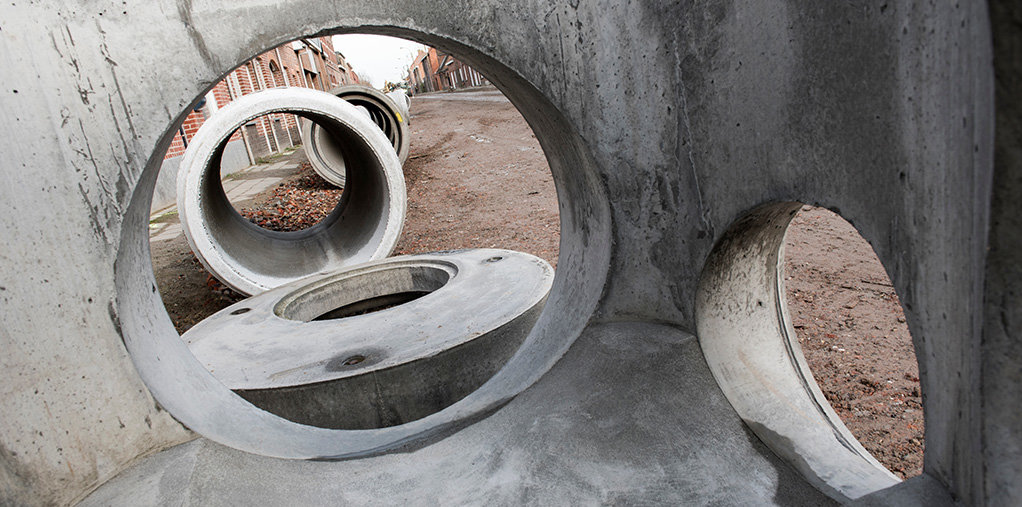
IMPAKT! stormwater project
Since 2017, we have been working with the Flanders Environment Agency, Aquafin and the Dommel water authority in the Netherlands on improving water quality in the Dommel valley (Limburg). The European IMPAKT! project, supported by Interreg (the European Regional Development Fund), was successfully completed in 2020. The capacity of the Eindhoven buffer basins was expanded in order to capture more water in the event of heavy rainfall. Using a new method, water in the Dommel River is now aerated so that oxygen levels are maintained during heavy showers. A special valve to prevent pollution was also installed at an industrial site in Tongeren.


